No water, no garbage collection, no electricity: What life is like in the town Qld forgot
In this Queensland town more people live on the 2000-odd blocks surrounding it, than in the township itself. Yet the ‘blockies’ continue to struggle to get basic amenities, including water and electricity.
News
Don't miss out on the headlines from News. Followed categories will be added to My News.
They thrashed their way through the brigalow and wattle, pioneers hell-bent on realising a dream. Horses and carts filled with the makings of a settlement pushed along a winding, overgrown track to the place they called Tara. “Truly,” wrote a scribe from Dalgety’s Review, “it was a place that would frighten most except the undaunted.”
Victorians led the first big wave of the 1910s, the prospect of land at a quarter of the price they’d pay down south enough to convince them to take a boat to Brisbane, then a train to Dalby, then saddle up the rest of the way. They got to work, ringbarking and fencing and suckering that bush until a farming district took shape.
More came: the traders, the soldiers, the shearers and despite droughts and the scourge of the prickly pear, by the ’60s and ’70s, Tara was riding high on the sheep’s back.
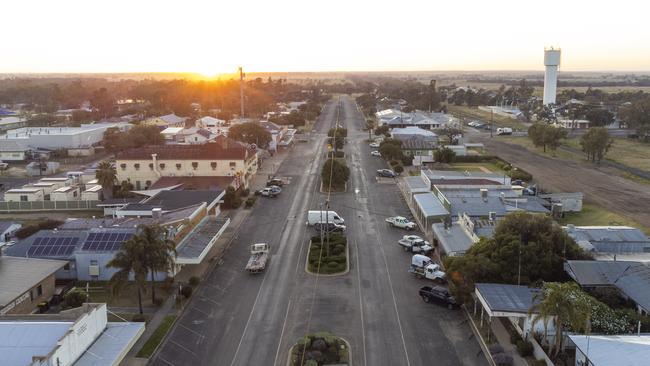
Booms don’t last. Come the mid-1980s, the wool industry was in decline and Tara, 300km west of Brisbane, took a hit. As the population waned, another wave of settlers came.
Not farmers so much as refugees from the cities, the poor and disadvantaged, lured by another land boom. The blocks.
Carved out of the scrub by Washington Developments, these mostly 12 to 20ha (30 to 50 acre) blocks offered no power, no water, limited fencing and the most basic of roads but they were dirt cheap and to “the blockies” who swept them up, it was a place to call their own.
Jane Rampling, 39, knows something about that history, having formerly lived in Dalby, about 90km east of Tara, and from her father’s time in the district. She is part of a new wave, the second generation of blockies to stake their claim on this tough land.
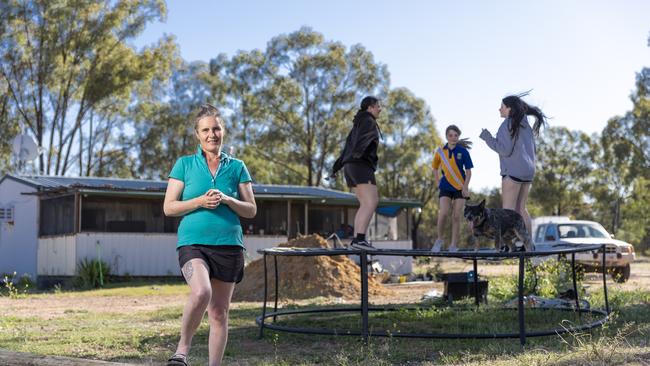
She’s in her shack on Upper Humbug Rd with her blue heeler named Tradie when we arrive, getting ready to pick up the kids from school.
Rampling and her partner, James Brassel, moved in to their tiny timber and tin shack at Christmas last year, with three daughters – Bianca and Zoe Spencer, 15 and 12, and Tiani Brassel, 15.
“We’ve added bits to make it liveable for the girls,” Rampling says. “We looked out here because of the price of land; the money we’d saved wasn’t enough to get land in Laidley where we came from.” It’s a common refrain.
Unlike many of the blocks, it has power. But there’s no water so they go in to Tara to fill up the tank and offload the rubbish. They’re 25km from town and have no garbage collection. Telstra coverage is patchy so they use satellite Wi-Fi and Foxtel to provide television. They’ve added windows and screens and adapted a baby change table for a place for the adults to have their meal.
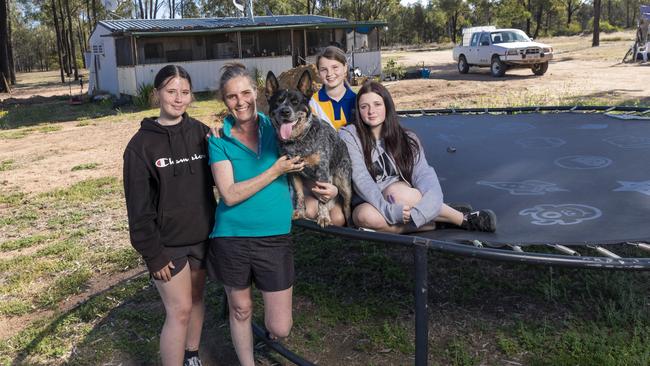
It’s hard work, she says, but part of the vision for a five-bedroom house to rise out of this scrub in the next year. And they’ve got it better than many on the blocks, she reckons. “The girls know how lucky they are.”
Some of her girls’ friends “are basically camping”. They’ve visited friends who don’t have a stove or showers.
“The teachers give out packs at the start of the year full of soap, shampoo, conditioners and all their toiletry hygiene,” says Rampling, who is chuffed by the care given at Tara Shire State College. “They have showers there for the dirty kids that smell and they can go to the teachers to refill their bags any time through the year.”
The down-at-heel nature of some blockies has not sat well with some established “townies”, but the fact is, the future of Tara is as intertwined with the blockies as those descended from the pioneers before them.
More people live on the 2000-odd blocks than in the Tara township of about 800 residents. At least twice as many, with some estimating the figure would be closer to three times. Farms in the wider district are less populated, as labour-saving equipment reduces the need for workers and properties merge.
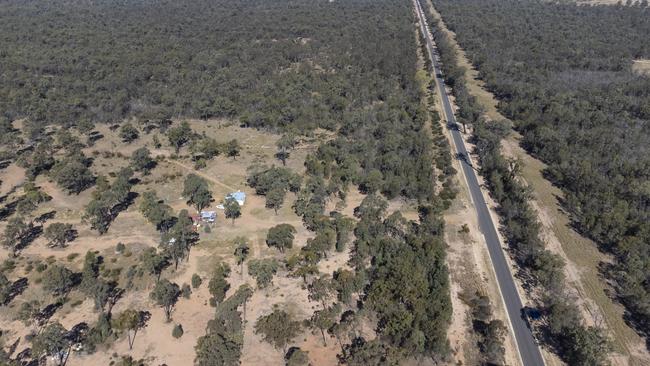
Says born-and-bred local David Gunther, the owner of Tara Rural Supplies, without the blockies, “we don’t have a town. And I don’t have a business”.
But like many small rural towns, Tara is far from bustling. The main street is full of empty shops or for sale signs. The only pub is on the market and the banks have shut.
Some blame the 2008 amalgamation of Tara Shire Council with the behemoth Western Downs Regional Council, saying the council neglects the little town in favour of the bigger centres of Dalby, Chinchilla and Miles.
The fact Tara’s in safe Liberal National Party heartland leads some to believe it is taken for granted. Others blame the blockies for their fight in the 2010s against coal seam gas wells on their properties, a battle that saw companies concentrate their exploration – and expenditure – outside this part of the massive Surat Basin.
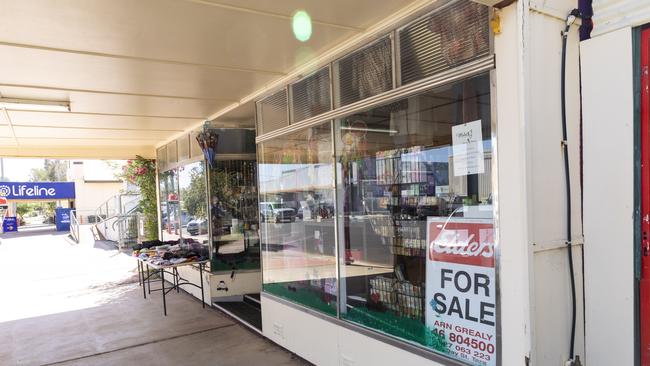
But a few things have galvanised the town. In March last year, WDRC announced it was downsizing one of Tara’s few sporting assets, the 50m swimming pool, a pool the town had raised the funds for in the early ’60s heyday.
Without consultation, Tara locals were told they’d get a 25m pool. Then in late July this year, the council announced the Tarcoola Aged Care Facility, again originated by town fundraising, was to be closed, taking 40-odd jobs.
A small town rose up. The decline of rural towns is a phenomenon Australia is grappling with, says David Littleproud, the local federal MP and Agriculture Minister, but a place like Tara won’t just fade away. “These communities come together when they get put into a corner, they start fighting back. And so they should.”
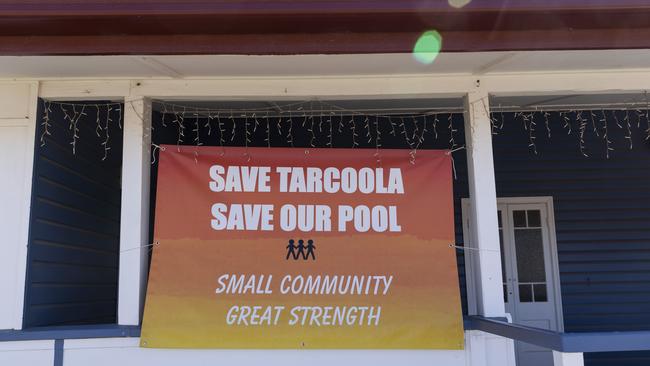
CHANGING FORTUNES
The Western Downs calls itself the Energy Capital of Australia, a moniker assumed with the advent of the multibillion-dollar CSG industry in the late 2000s. Mining drives the area, representing 41.3 per cent of the council area’s $4.32bn value-add in 2018-19. The days of a wool bonanza are gone: agriculture combined with forestry and fishing comes in third at 9.8 per cent, behind construction.
The region’s mayor, Paul McVeigh, says the towns that “were more accepting” of CSG, such as Dalby, Chinchilla and Miles have thrived. “There’ve been challenges – but they’ve certainly seen the benefits,” McVeigh says. “The growth; there’s hardly a house to rent in our major towns. Business has certainly escalated.”
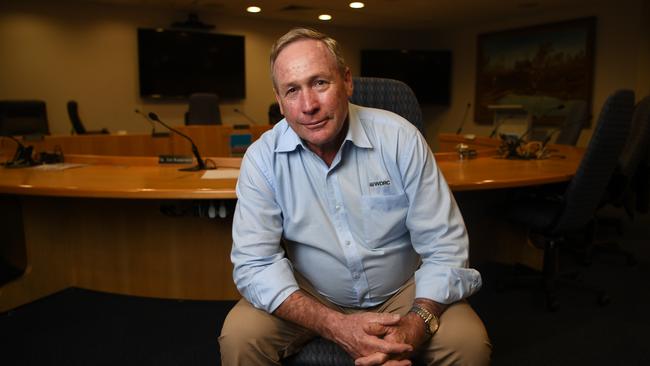
But Tara became the poster child for anti-CSG sentiment, with blockies running blockades against mining companies’ rights to explore and drill on privately owned properties.
Some of the most affected, or most vocal, blockies were bought out by gas companies. Gas wells exist in the district but companies have, until now, concentrated their efforts outside Tara.
They are inching back. Owen Brauer, who owns Tara’s up-for-sale Commercial Hotel, is also a farmer who has a property northwest of Tara. He’s part of old Tara; the slab hut his grandfather built in 1912 is a feature of the local historical museum. Recently, the Brauer family negotiated with Origin/Australia Pacific LNG to allow up to 18 wells on its farm as part of the Ironbark CSG project. He’s happy with the deal.
But Adrian Murray, a Tara blockie of 16 years, says those deals on farms of thousands of acres are not comparable with those of the blocks.
“Put [a gas well] in the corner of a big farm is one thing but if you’ve got your family home on a 30-acre block and you look out the window at this bloody gas well, it’s a different story.”
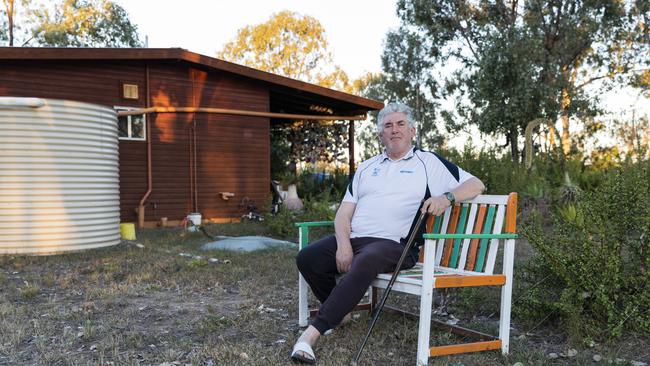
Outside his sound and comfortable home on 20ha, the brigalow sways in the breeze, a scene Murray prefers to urban living. Inside, you’re reminded of a sitting room in his native Ireland, every space adorned with old-style wall vases. In dry times, he carts his own water but has power. Not being on mains power is no big deal, though. “It’s the 2020s, you know, people do have solar.”
Murray’s proud to be called a blockie, despite the derogatory use of the term by those “who have never lived on blocks of land in their lives”.
“They think we’re out here living in cars and washing in dams,” says the chef, who works for a company that services mining companies, mostly in South Australia but occasionally in this region. It’s true, he says, there is a sizeable percentage of people on the blocks who are socio-economically disadvantaged and live with just the basics.
“As the cities get busier and more expensive, people get pushed out and they’re coming this way,” Murray says. “You will have people who need extra help in managing their children, managing their finances and the way they mix with people.” He maintains you’ll find people in those circumstances anywhere, just as you will find drug use.
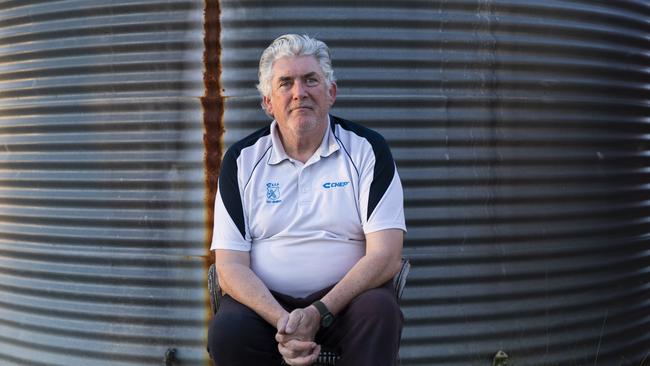
A council-generated 2010 report on the health and wellbeing of the Western Downs found the Tara district was the most disadvantaged in the region. It had a high proportion of people with profound or severe disabilities, a higher rate of poor mental health, unemployment and welfare dependency or low income. No follow-up report has been done.
Murray says the make-up of people on the blocks is changing, and there are “a lot of wealthy people on these blocks. A lot are weekend blocks and hobby farms, secondary assets. But the assets won’t stay assets for too long if there’s no investment in the town.”
Early this year, Murray’s belief that the debt-free WDRC is neglecting Tara drove him to join the Tara Futures Group, a business and community organisation which liaises with council. After watching the banks and shops close, the streetscape grow “dirty” and the swimming pool decision, he’d had enough.
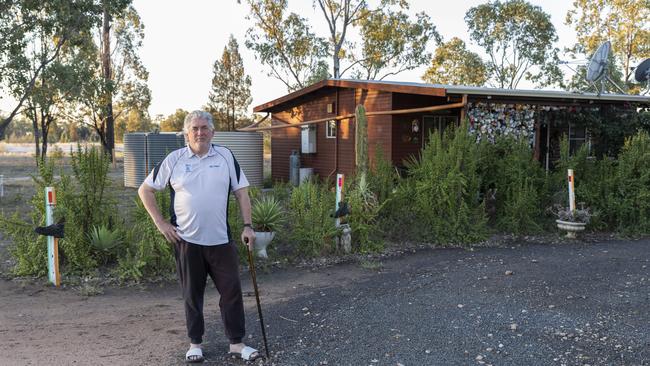
He plans to shake things up at the Futures Group, which he claims has become beholden to the council and is filled with compliant LNP supporters. “New people [joining the group] means it won’t be a rubber stamp anymore. We’re saying, ‘No, we’re not the voice of council, we’re the voice of the people to the council’.
“The council will take the rates but not supply the infrastructure,” Murray says. “There’s been no real investment in fixing things, they’ve been putting Band-Aids on things around here for the last 20 years. Nothing has changed. Nothing. The roads are death traps … cars are ruined driving on these roads.”
He believes, although has no evidence, the council is maintaining the status quo on the blocks to make the return of the CSG industry, and the prospect of jobs it would bring, more attractive in the area. McVeigh says that’s untrue.
Murray argues the council should invest in attracting industrial estates to Tara, not just the bigger centres. “We need council to put the equal amount of money per head of population into Tara, it will turn it around,” he says. “We want to see the council take ownership of Tara.”
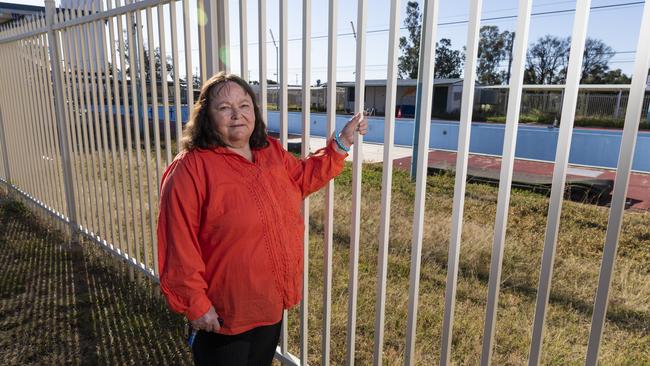
His friend and ally, Gayle Porter, the local newsagent, says Tara has been neglected by the council ever since amalgamation.
She was the Futures Group president soon after the merger and says she knocked heads with the mayor when she protested the selling of road work machinery and the shutting down of the old Tara Shire Council’s work gangs. “I could see what was happening back then and I did stand up and say, ‘What are you doing to Tara?’” she says.
She pays $6000 a year on rates on two buildings in the main street “and I can’t see value for money for that. We’ve got 60-year-old sewerage and a footpath that hasn’t been touched for years”.
“They’re spending heaps of money in Miles on the streetscape and their streetscape was reasonably good. They can’t give us a 50m pool but they can do a $14m cultural centre in Dalby. Tourists are great and council’s spent a little bit of money in Tara to bring in the tourists, but the main people who are important is the community members that live in this town. Council has forgotten about us.”
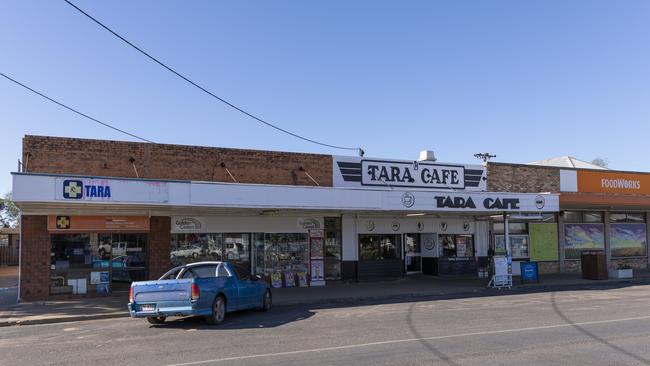
Mayor McVeigh denies Tara is being short-changed. In fact, “the money we spend in the Tara region is far greater than the rates collected”. He says most of Tara paid minimum rates that barely covered costs. “A lot of the time that is subsidised by other operations in the region, which is the CSG as well. The energy industry pays close to 50 per cent of the collectable rates of this region.”
He says more than $20m was spent in the past five years on Tara, beyond normal operating costs. The Tara Lagoon had been redeveloped with money from the council, federal government and Shell Queensland Gas, and the town’s camel races carnival, the showgrounds and the new pool project received funds.
Western Downs has 10,000km of roads to service and $18m had been spent, or was budgeted to be spent, on Tara’s roads in the last and this financial year. The council spent $1m on a bore to provide potable water.
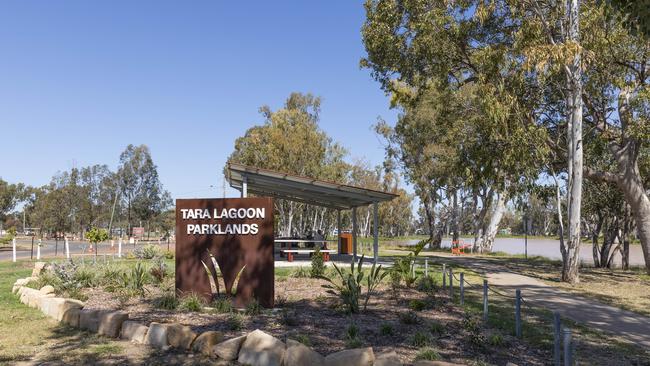
McVeigh says the council tries to drive economic development across the region “but it’s not totally its responsibility, it’s very much the responsibility of communities and Futures Groups to promote the towns to be the place they want people to live and work and grow their business”. But council is investigating ways of getting some industry funds to help Tara residents develop a five-year plan, as has been done for some of the larger towns in the region.
Ten years ago, says McVeigh, the community said no to the energy sector which was now starting to “move its footprint back Tara’s way”. “Now if they started saying yes they will probably see some opportunity for some energy growth in that region.”
As for the suggestion that Tara is ignored because it protested against CSG over a decade ago: “Absolutely not. No way. That’s a negative comment with no grounds.”
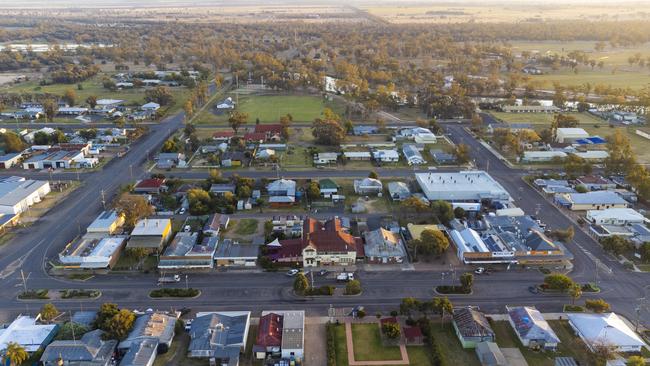
THE FIGHT
Some locals joke with a kind of gallows humour that Tara is the “Bermuda Triangle” of the region, the place where funding disappears. Some say it’s treated like the ugly duckling or a naughty child.
Others say there are too many whingers in the town, not enough doers. Small town politics can be brutal.
Ray Jamieson is part of the old guard, a councillor with the former Tara Shire Council from 2004 until being elected to the new WDRC for two terms.
He ran for mayor against McVeigh in 2016 and lost. Now none of the eight councillors nor the mayor come from the area. And with its small population, “they could kick the Tara district in the guts every day of the week and twice on Sunday and it’s not going to affect their electoral chances”, he says.
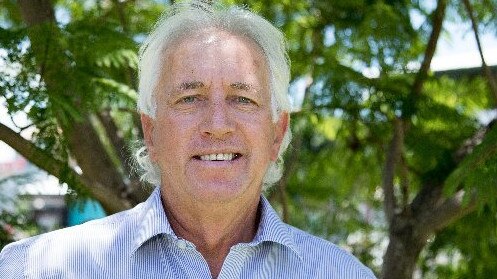
Towards the end of his tenure, he says, talk had crept in to council that “areas that didn’t have gas fields were going to suffer economically and why should we invest so much money in those areas?”. He says the attitude was that given energy companies were paying so much in rates, investment should go to where they were based.
Jamieson believes the council – covering a region the size of Tasmania – should be split into divisions so that each district has representation.
Although councillors during his time tried to take a regional view, when it came to budget allocations, “it was every man for himself and his own little patch”.
The Tarcoola closure announcement in July shocked Jamieson. The council had been trying to exit from running the 33-bed aged care facility for some time, a position Jamieson understood. But he expected new management to be installed, not a pending closure that caused anguish to elderly residents.
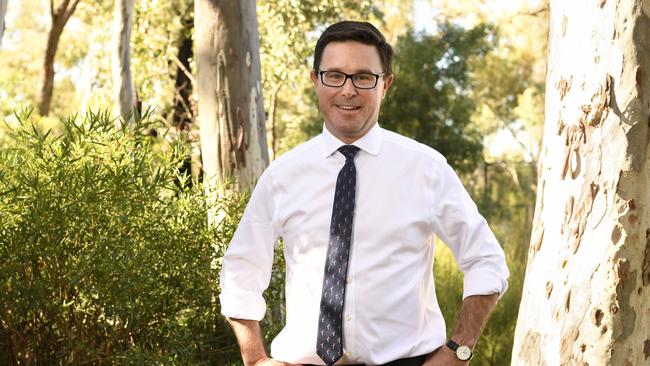
David Littleproud also expected a smooth exit, not the closure bombshell. The MP says the council had been in discussions with Southern Cross Care at the time it announced Tarcoola would be closed. The Federal Department of Health had “strongly advised” council to make no decision or announcement on Tarcoola’s future until those discussions were finalised.
The fact it did “just beggar’s belief”. “Who goes and closes an asset down when they’re in the middle of negotiations to sell it?”
McVeigh argues council was forced to move to close the facility because of staffing problems. It had to protect the health and safety of residents. He denies the council failed in its consultation with the community, having flagged problems it was dealing with.
But the town saw it as just one more hit from an aloof council. Littleproud got involved. He phoned David Gunther, an old mate from their banking days, and a steering committee was formed.
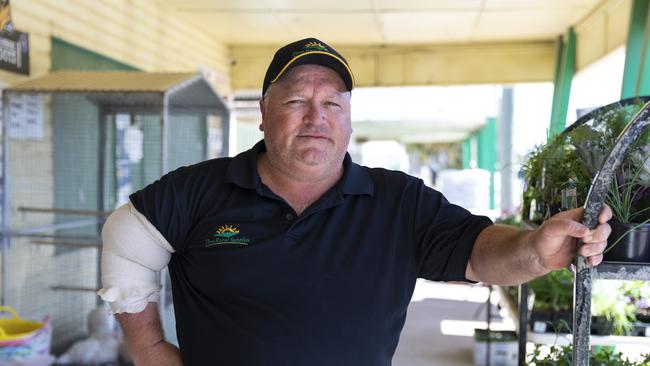
It met with council and lobbied councillors, urging them to double down in the negotiations with SCC. Others did their own lobbying. In early September, they had a win. SCC agreed to take over the running of the facility, as well as investigate taking over the running of all council’s aged care facilities and services in 2022.
“Most communities would have taken it,” says Littleproud, “but Tara didn’t; they’re the little town that fought back and told the council to take a running jump and they won.” He says while Tara is doing it tough, it will survive as an agricultural hub, with its good hospital and schools acting as an anchor.
As for the pool, it’s drained now, the concrete cancer that sparked its redevelopment getting worse in the sun.
Gunther, the past president of the Tara Swim Club, says the first the community knew about its redevelopment to a 25m pool was after the council voted to approve it in March last year as part of a council Covid-19 stimulus package. One councillor suggested consulting with the town but that was voted down.
Says Gunther, who points out Tara will be the only town in the southwest school cluster without a 50m pool: “That’s what council does, they tell us what we need, they don’t ask us what we want.”
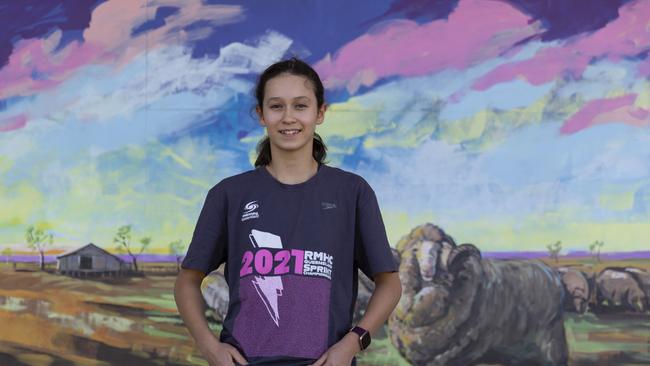
Tara Kate Russell, 13, wants to train in a 50m pool. The freestyler who came 27th in the 50m at the 2021 Queensland Sprint Championships has her eyes on the 2032 Olympics. Her parents now drive her to Chinchilla four nights a week, a 90-minute return trip, for training.
“I’d like to say to council, ‘Give love and support to small communities like Tara’,” says Tara Kate. “We always miss out. It’s always an unfair use of resources and we should at least have our memorial pool that my great grandfather as well as the community helped build.”
McVeigh admits consultation on the pool could have been better; that it should have made parts of confidential engineers’ reports available to prove its disrepair. But, he says, the new 25m pool will be heated, have disability access and a kiosk, with its budgeted cost already going up from $3m to $6m. “Even Olympic swimmers train in 25m pools,” he says.
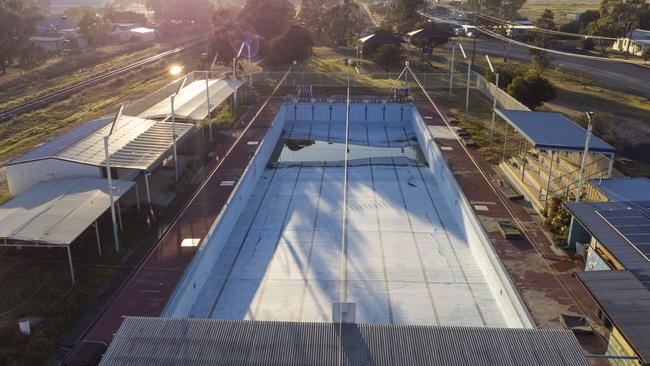
But Gayle Porter, who moderates the Facebook group We Love Tara Community Group, says she’s not done yet. She’s urging townsfolk to bombard council with emails and calls, to fight for “our last crown jewel of the community”.
“It’s devastating that the council has done this to our town, gradually made us feel like we’re not important and we’re just some sort of creatures that don’t deserve the few things we’ve always had,” she says. “We haven’t stopped fighting. We’ll fight for our 50m pool.”
HOPE AND HARD WORK
The Lifeline store is doing a steady morning trade and Denise Murray is chatting breezily with customers, revelling in her new job as manager. She’s one of Tara’s recent arrivals, becoming a “blockie” for one reason: “The price.”
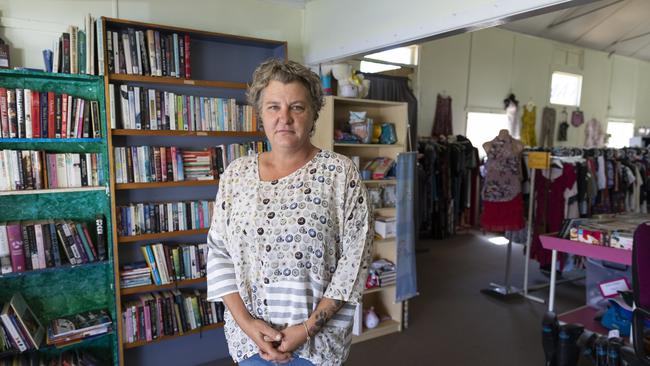
She and her husband paid $35,000 for a 12ha block with a dam in April last year, just after Covid-19 hit, another driver of newcomers to the bush. Businesspeople in town say they’ve noticed an uptick in residents in the past two years, leading to prices for 12ha blocks rising from an average of $25,000 to $35,000.
For that money, says Murray, 46, they could not have afforded a deposit on a house in Tasmania, where they had lived before arriving in Tara in November last year. “Here, we were able to buy our block outright,” she says. “People who buy blocks up here, that’s what they want. Outright. Their own.”
They signed for it without inspection, knowing the land was not suitable for crops or grazing but unaware the CSG industry was in the area. There’s no power or water so they use solar and have bought a tank. It’s caravan living for now until they build their house.
“Our block was only fenced on one side so we had to do the other sides and it rained nearly non-stop for two weeks,” she recalls. “We were trudging in mud that deep and the mossies looked like they could carry you away. But we were happy doing it because it’s ours.”
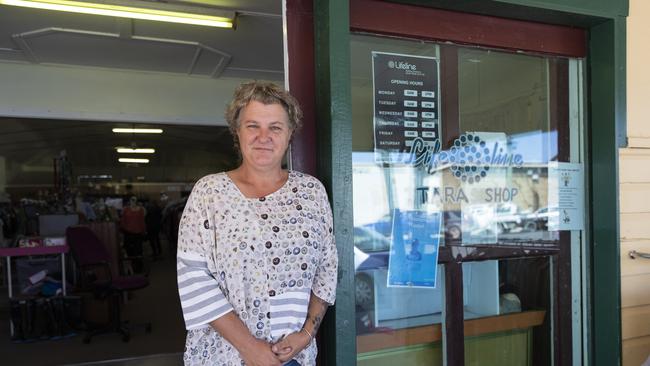
Murray has heard about the furore over the aged care home and pool. She knows shops have been closing. Still, she loves the place, despite “literally melting” last summer, and says the people are “beautiful”.
Tara is home now and she’s committed to it, keen to emulate the now-retired previous manager, “a pillar of the community”. Says Murray: “Life’s what you make it.”
Just like Jane Rampling and her family, the Murrays have chosen Tara because other choices were out of reach. Like the pioneers who dug in, undaunted, to a harsh and uncompromising land, they have staked their futures on this little town that needs them as much as they need it.
More Coverage
The smart way to keep up to date with your Courier-Mail news
Originally published as No water, no garbage collection, no electricity: What life is like in the town Qld forgot




